Pardon me: I used the title of this article as a bait. Sensationalism is not in my character, pardon me again, but discussing who should be the next president always excites us in Nigeria. We were created for elections and permutations. I decided to trick you by making it look like I wanted to appraise the aspirants in the 2023 presidential election, after which you would expect me to sing the praises of one of them as the Moses to lead Nigerians out of Egypt. We have been doing the permutation business for decades but what have we achieved with it? Most Nigerians are still as poor as the ancient church rat and the Federal Republic of Nigeria is still importing petrol and engine oil.
If you are like me, you would be less excited about electioneering in Nigeria. Seasonally, our hopes are raised with promises of heaven and earth. Our eardrums always boom with campaign rhetoric. The posters are ever so beautiful. The violence on Twitter is always next to none. Campaign grounds always brim with crowds, sparking off my-Mercedes-is-bigger-than-yours competition between opposing supporters — though we all know that many Nigerians attend political rallies as a poverty-alleviation tactic. That means they will go to as many as possible — even if organised by different candidates and different parties — hoping to go home with wads of naira and loaves of bread.
I would not be as cynical as suggesting that nearly 23 years of democracy has done us no good. I do not belong to that school of negativity. From the administrations of Presidents Olusegun Obasanjo, Umaru Musa Yar’Adua and Goodluck Jonathan to Muhammadu Buhari, we have definitely recorded some important strides: reforms in banking, pensions, telecoms, oil and gas, power, agriculture and identity management, as well as some improvements in public infrastructure such as roads, railways, airports and classrooms. But we are still fundamentally stuck in underdevelopment. It is clear to all and sundry that Nigeria can — and should — be far, far, far better than this. But it is what it is.
My interest in the presidential election today is not in the permutations. The focus is on my basic expectations of whoever would be president. I am aware there is still this nagging question of where the president should come from: north or south? My opinion, which I often express, is that the next president should come from the south in the interest of national unity. It should be common sense that in a fragile, underdeveloped polity like ours, satisfying political emotions is important for stability. But deep down my heart, I do not really care where the president comes from — all I want is someone who will lead us aright. And I know I speak the mind of millions of Nigerians.
Advertisement
As for the requisite qualifications, I will stick to my central theory that the political leaders that will help transform Nigeria must have these two key qualities: competence and patriotism. We also talk about “capacity” but I naturally subsume that under competence: that is, having the essential, proven skillset and experience vital to public administration. Capacity is part of the competence package. As a composite, patriotism — which I define as “putting Nigeria above sectional bias and personal gain” — will drive the leaders’ policies and actions, including hiring and firing. I am definitely not looking for angels: just competent and patriotic leaders. Is that too much to ask?
Having listed the major qualities I believe our political leaders should have, I will now narrow down on my idea of the right candidate for the office of the president. I will try to be as realistic as possible — I don’t want to be accused of Utopianism. First of all, the president must have the mindset of a project manager. The project, in this case, is an economic and human development agenda for Nigeria. Many jump into politics without understanding what governance requires. From what we can see, most are only motivated by the perks of power and the easy wealth that flows therefrom. Some are blank when you discuss development with them. They think you are speaking Greek.
From the outset, the leader — as the project manager — must have clearly defined goals, complete with timelines and deadlines, picking the right core team, setting performance baseline for them, guiding them efficiently, appraising them regularly, and dropping the deadwoods to keep the team healthy, motivated and productive. No matter how many geniuses are in a president’s team, the buck does not stop with them. It stops at the president’s desk. Therefore, it is not enough to appoint good hands — there must be regular guidance, monitoring, appraisal and rejigging. Appointees should not be made to feel performance is inconsequential. Pray, is that too much to ask?
Advertisement
On team selection, Nigeria is just a funny country. The president traditionally nominates ministers without listing their portfolios. Our dear senate will then screen them excitedly without knowing what ministries they will be assigned. Standing in front of them is an economist who may be made minister of women affairs but they will be asking the nominee questions on inflation, ease of doing business and fiscal policies. What a joke. Why can’t the senate insist on knowing their portfolios so that the nominees can be screened accordingly and meaningfully? What a shame. If we cannot get the simple things done, how can we get the major things accomplished? Is this too much to ask?
What do I mean when I suggest that the president must pick the right “core team”? I accept that every appointment is important but, in reality, no president can focus on 40 areas of development with equal passion, energy and resources. In any case, some ministries are mostly on autopilot mainly because they operate in a highly privatised environment. They only do routine jobs or play intermediate roles. This is different from the ministries driving the critical policies that shape a development agenda. That is why I consider some appointments as “core” from which other things flow. The choice of core appointees is, thus, of crucial importance to a development-focused leader.
For instance, the minister of finance is a core appointee. It has to be someone who is very sound in economic policy and must have an evidently rich pedigree. I will always go for an economist to fill this position because of the broad, cross-sectoral thinking required. Another core appointee is the attorney-general, who must be intelligent and sound in legal matters. It must not be a wheeler-dealer interested only in accumulating obscene wealth, sharing legal fees and commissions with lawyers and colluding with litigators to rip off the country. A corrupt attorney-general, as someone said, can bankrupt a nation. This portfolio is highly important in every democratic order.
The inspector-general is another core appointee in a democracy. Unless we modernise policing, Nigerians will never have faith in the system. We have had all kinds of IGPs but we cannot honestly say policing is getting better. Human right abuses, such as extrajudicial killings and torture, are still rampant, and this is to say nothing about the corruption and political hijack. The president must understand that the current policing system only serves the rich and the powerful. Since democracy thrives on law and order and is supposed to work for the people, we need an AGF who is versed in the rule of law and an IGP whose passion is protecting lives and property. Is this too much to ask?
Advertisement
There are other core appointments that the project manager must give the best shots: education and health. Although Nigeria runs a federal system under which education and health are shared responsibilities with states and local governments, some major policies are driven from the centre and they can improve our collective experience if well thought-out. Also, federal government can ensure that its own schools and hospitals are well-equipped and well-run. We can use some positive competition there between the federating units. I know the list of core appointees can be longer, but any competent and patriotic manager of the Nigerian project will not joke with these ones.
In addition to team formation, the president must be someone who pauses once in a while to review the administration’s policies. Are they working well? Should they be improved upon or jettisoned? The lack of policy impact assessment is a major failing in Nigeria. Advanced societies engage intellectuals to study the progress of policies. In Nigeria, it is none of our business. For instance, is the 6-3-3-4 school system better than the old 6-5-4? Has UMTE produced better outcomes than A’Levels? Has the TSA helped or hurt Nigeria’s economic progress? Are pre-departure and post-arrival COVID tests still necessary? Regular policy appraisal is one of the secrets of development.
My expectations of the next president that I have listed so far are not complicated: a competent and patriotic candidate with a clear development agenda; one who will be passionate for country above sectional and selfish interests; one who will assemble a core team to implement the development agenda; and one who will assess policies regularly to keep them fit for purpose. With these basics sorted, the president can choose whether to do a one-point agenda or 30-point agenda. No matter the slogans, any president that will lead Nigeria aright must have security of lives and property, rule of law, value re-orientation and national unity at the centre of the development agenda.
The project manager, or next president if you will, must understand that for the development agenda to work, some reforms are inevitable. Some are low-hanging fruits but some come with discomfort. For example, port reforms are low-hanging. The result-oriented president will put the right people in charge of customs and the ports and implement an automated system so that the demons can be exorcised convincingly. The damage our ports do to international trade every year cannot be less than N1 trillion in monetary terms. It is not just as a result of the vile corruption but also the pervading gross inefficiency. No economy can function optimally under this system.
Advertisement
Until our leaders understand that development is a project to be conceived, planned, executed, monitored and pursued to a logical conclusion — with a clear transition and succession plan — we will keep falling off the ladder. It will be like a game of snake and ladder, with the snakes outnumbering the ladders by 2:1. We will be taking one step forward and two backward as we have been doing for decades. Therefore, our leaders at all levels — national, state and local — must understand that development is deliberate. It won’t happen by accident. To exit underdevelopment, competent and patriotic leaders must constantly drive the process. Is that too much to ask?
AND FOUR OTHER THINGS…
SO LONG, SHONEKAN
Advertisement
Chief Ernest Shonekan died on Tuesday at 85. The former head of the interim national government (ING) ruled Nigeria for 83 days in 1993. Word in town then was that Gen Olusegun Obasanjo came up with the idea of ING to be headed by himself. The nation had been engrossed in crisis after the annulment of the June 12 poll won by MKO Abiola. Obasanjo went around saying Abiola was not the messiah. But while Gen Ibrahim Babangida bought the ING idea, he did not make the Obasanjo the head. He instead picked Shonekan, an Egbaman like Obasanjo and Abiola. Shonekan was soon swept out by Gen Sani Abacha. Sadly, Shonekan never told his story. My condolences to the family. Adieu.
DECLARATIONS GALORE
Advertisement
You can tell it is political season again. Asiwaju Bola Ahmed Tinubu has finally divulged the worst-kept secret in sub-Saharan Africa — that he wants to run for the office of the president in 2023. Governor David Umahi of Ebonyi state has also declared his interest. It is believed that other APC big guns such as Vice-President Yemi Osinbajo and Rt Hon Rotimi Amaechi, the minister of transportation, will also throw their hats in the ring. In the PDP, Senator Anyim Pius Anyim has announced his bid. Former vice-president Atiku Abubakar is expected to launch another attempt, 30 years after his first bid. This is the “festive season” for politics and it will last for 14 months. Enjoy.
BETTER OR WORSE?
Advertisement
President Buhari said on Friday that Nigerians need to be fair in assessing his government’s efforts at tackling insecurity, that he has made good progress since he came to power in 2015. Hmmm. As he was speaking, bandits and terrorists were operating in Niger, Taraba and Nasarawa states, killing dozens of people. These states were safer in 2015. Boko Haram also attacked police and military installations in Borno state same day. While I appreciate the efforts of his government and the gallantry displayed by the security agencies, what Nigerians want is result, not just effort. They are hoping and praying that their country will be safe and secure soon. But it is not yet uhuru. Fact.
DJO-COVID DRAMA
World’s top tennis player, Novan Djokovic, has been the centre of a global drama following his face-off with the Australian authorities over his vaccine status. The Serbian (who, by the way, is my favourite player), seems to be an anti-vaccination champion, which is within his rights. However, he should have boycotted Australia Open because of the vaccination requirement. He further complicated matters by saying he got an exemption because he had been infected a few weeks ago — which means he still has some immunity — but a cursory forensic audit left more sour taste in the mouth. His bid to become the player with the most Gram Slam titles is now in disarray. Shame.
1 comments

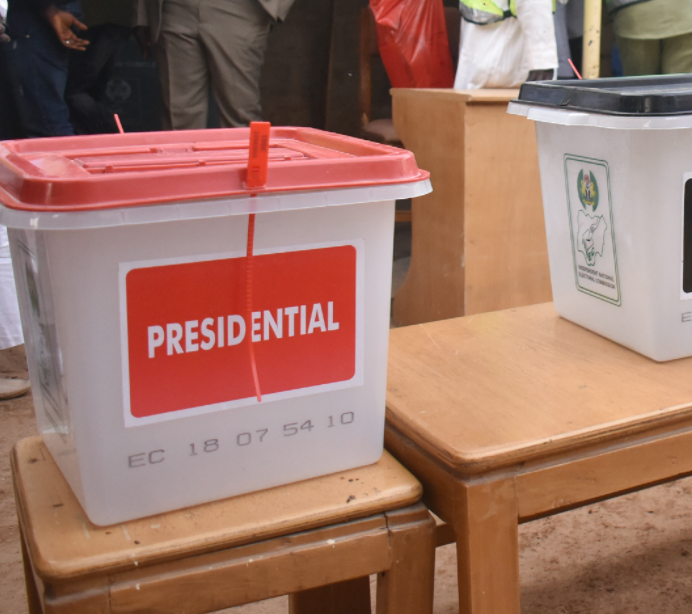
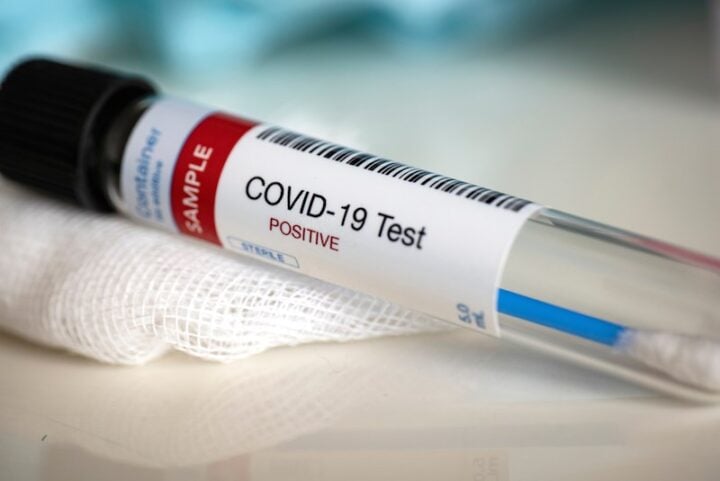

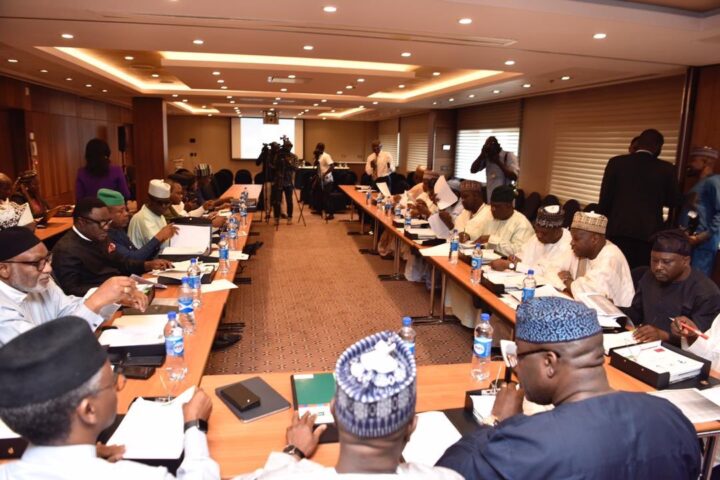
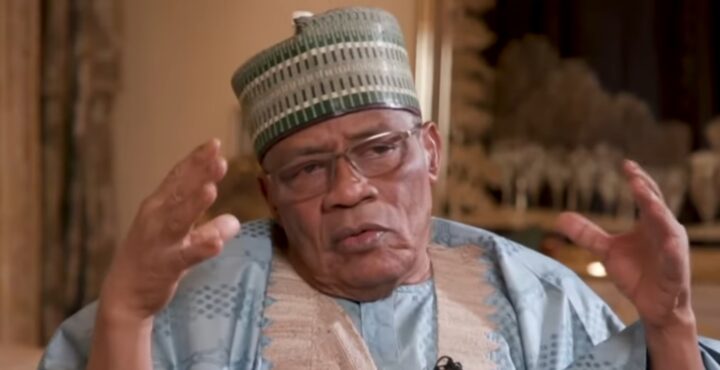

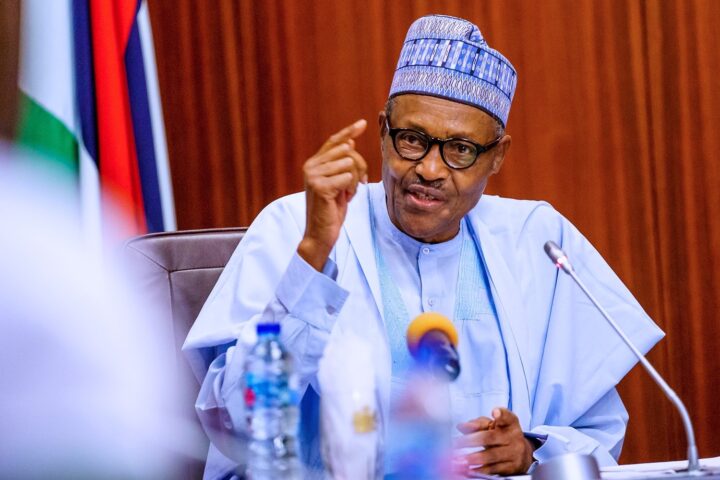
You left out your thisday backpage colleague, Dele Momodu